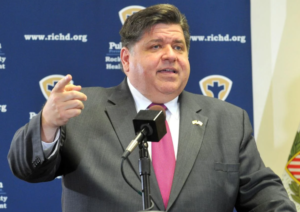Kansas Gov. Laura Kelly recently said that more than $7 billion in new business has been invested in the state since she took office in 2019.
During her tenure, more than 29,000 new jobs have been created, according to the governor’s office.
“Since day one, my administration has been laser-focused on building an economy where families and businesses want to call home,” Kelly said in a news release. “Surpassing the $7 billion mark in new business dollars invested in our state is proof that our efforts are working – and we’re not slowing down any time soon. We’ll continue to invest our schools, roads and bridges, high-speed internet, and our essential services to keep Kansas open for business.”
Dave Trabert, CEO of the Kansas Policy Institute, a free-market think tank, told The Center Square that the numbers can’t be validated.
“Governor Kelly makes that claim but her office cannot substantiate the claim,” Trabert said. “Our media outlet, The Sentinel, sent an Open Records request to her earlier this year that didn’t produce any proof of the claimed investment. And like most government claims of this nature, they don’t account for investment that would have occurred without giving taxpayer subsidies.”
The governor’s office did not immediately respond to a request for comment.
Dan Murray, Kansas state director of National Federation of Independent Business, told The Center Square that any business investment in the state is a good thing.
“Much of the announced investments, it appears, were for large developments or big businesses,” he noted. “We believe and hope that some of these investments will work its way into the small business sector.”
Murray said most surveys and indices place Kansas in the middle of the pack in terms of business friendliness. There are many factors impacting the business-friendliness, including taxes, workers’ comp, legal climate, energy costs and capital and labor costs. Murray added that the outlook for economic policy is not encouraging to owners, as federal lawmakers shift to talks about tax increases and additional regulations.
“Our state enjoys lower real estate and labor costs than many other states, but our businesses are increasingly contending with higher property taxes and the corporate tax rate is relatively high related to our neighbors and peer states,” Murray said. “The legislature continues to support business-friendly policies as it relates to the legal climate, unemployment insurance, workers comp and labor issues, like the minimum wage.”
This article was originally posted on Kansas sees record business growth, but some challenge governor’s rosy numbers





Be First to Comment